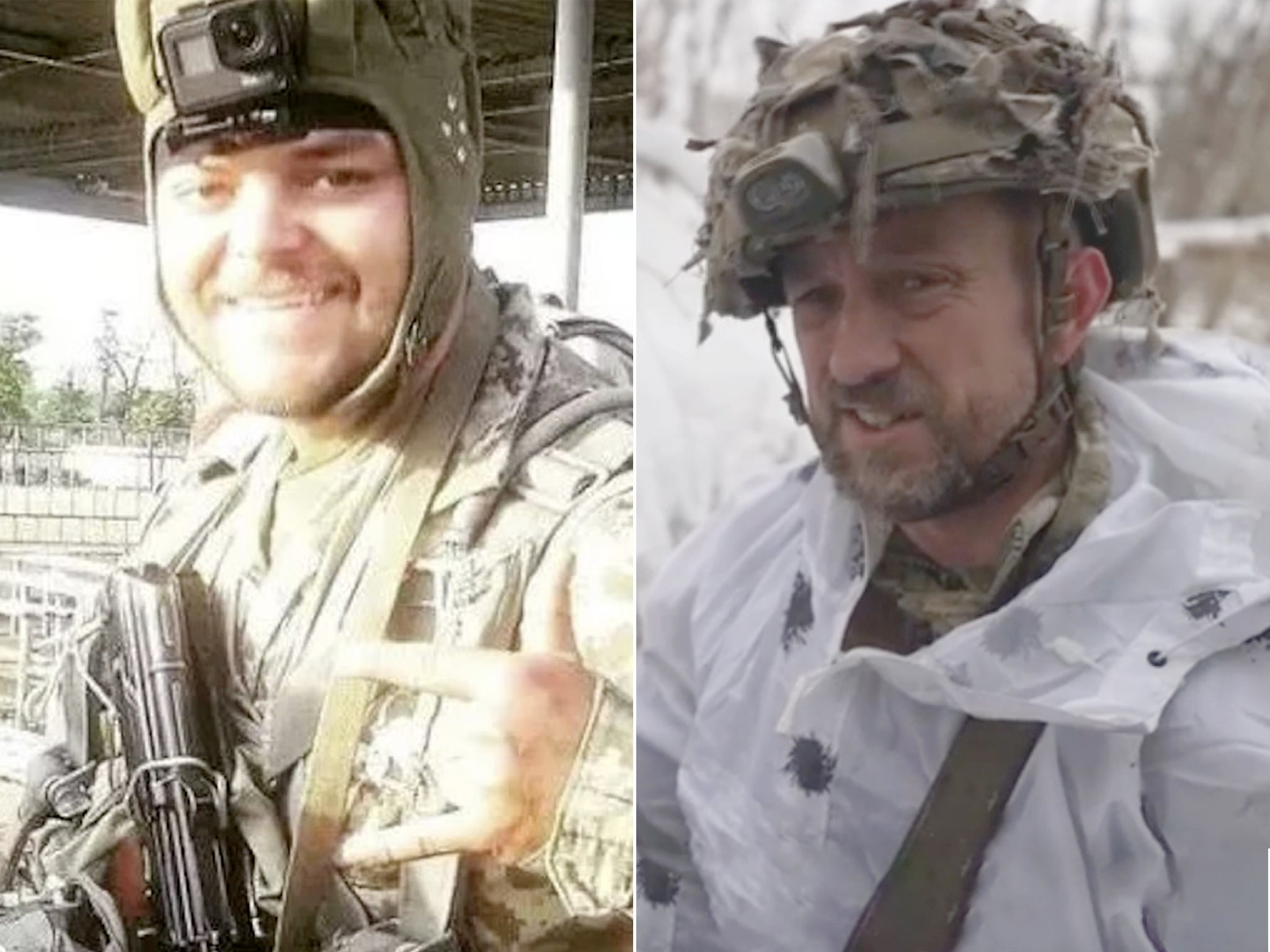It was only a matter of time before Russia took British hostages
Two Britons have been convicted on trumped-up charges and could now become bargaining chips


Your support helps us to tell the story
From reproductive rights to climate change to Big Tech, The Independent is on the ground when the story is developing. Whether it's investigating the financials of Elon Musk's pro-Trump PAC or producing our latest documentary, 'The A Word', which shines a light on the American women fighting for reproductive rights, we know how important it is to parse out the facts from the messaging.
At such a critical moment in US history, we need reporters on the ground. Your donation allows us to keep sending journalists to speak to both sides of the story.
The Independent is trusted by Americans across the entire political spectrum. And unlike many other quality news outlets, we choose not to lock Americans out of our reporting and analysis with paywalls. We believe quality journalism should be available to everyone, paid for by those who can afford it.
Your support makes all the difference.It was always only a matter of time before Britons in Ukraine were captured and sentenced to death as supposed “mercenaries”, and the only surprise is that it has taken so long for it to happen.
A kangaroo court in one of the illegal Russian-backed puppet regimes in eastern Ukraine has convicted three fighters – two British and one Moroccan – on trumped up charges, obviously with the aim of making an example of them – in other words, adding another war crime to Russia’s shameful inventory of barbarity – or using them as bargaining chips for the release of Russian or Chechen troops held by the Ukrainians.
The irony here is that some of the Russians and Chechens will have committed atrocities, and the Chechens are in effect mercenaries themselves. If it ever does come to an exchange of prisoners, the Russians will value the return of Chechens more highly, because they are the “property” of the warlords running Chechnya, because they are better – and more vicious – fighters than the bewildered Russian child soldiers, and because the Russians attach little value to the lives of their own troops.
It puts Boris Johnson in an invidious position. First, although Aiden Aslin and Shaun Pinner are British citizens, any negotiations in this war zone will have to be pursued by the Ukrainians, because (contrary to what Nadine Dorries said recently), the UK is not at war with or in Ukraine.
Second, the British government, directly or indirectly, will be making a deal with an illegal regime during an illegal war. And third, it feels wrong to be parlaying with the enemy in such a way. We’re not supposed to negotiate with terrorists or pay for hostages.
It’s an excruciating dilemma, and it’s also worth pointing out that Johnson is so preoccupied with saving his own political skin that he hasn’t got the capacity to be a hostage negotiator as well as prime minister. To be fair, he cannot win in this situation, but it tragically reminds us how wrong it is for Britain’s interests to be protected by a man who is not really “getting on with the job” of leading. Someone else might have a better chance of a happier outcome, which is why this is precisely the right time to get a new prime minister.
Which brings us to the role of Liz Truss in all this, and the soundness or otherwise of her judgement. Shortly after the Russian invasion of Ukraine in February, she appeared on the BBC’s Sunday morning programme, and replied “absolutely” when asked whether she would back anyone wanting to volunteer to help the Ukrainians fighting for their lives. She’s since tried to deny it, but this is what she said: “That is something people can make their own decisions about. The people of Ukraine are fighting for freedom and democracy, not just for Ukraine, but for the whole of Europe. Absolutely, if people want to support that struggle, I would support them in doing that.”
To keep up to speed with all the latest opinions and comment, sign up to our free weekly Voices Dispatches newsletter by clicking here
It was against her own department’s official advice, and indeed could result in prosecution under British law, and she was soon slapped down by her cabinet colleague (and emerging leadership rival) Ben Wallace, the defence secretary. Wallace said that he did not “want to see British people killed any more than I want to see Ukrainians” dying.
Both Britons had fought for the Ukrainian army for years before Russia’s invasion and should be protected as active Ukraine soldiers by the Geneva conventions on prisoners of war. However, it seems her tacit encouragement for people to go and fight the Russians when she should have been warning people that this isn’t a game was a very stupid thing to do. For someone in her position, it was an unforgivable error that — as this ‘trial’ verdict shows — has potentially fatal consequences.
Join our commenting forum
Join thought-provoking conversations, follow other Independent readers and see their replies
Comments